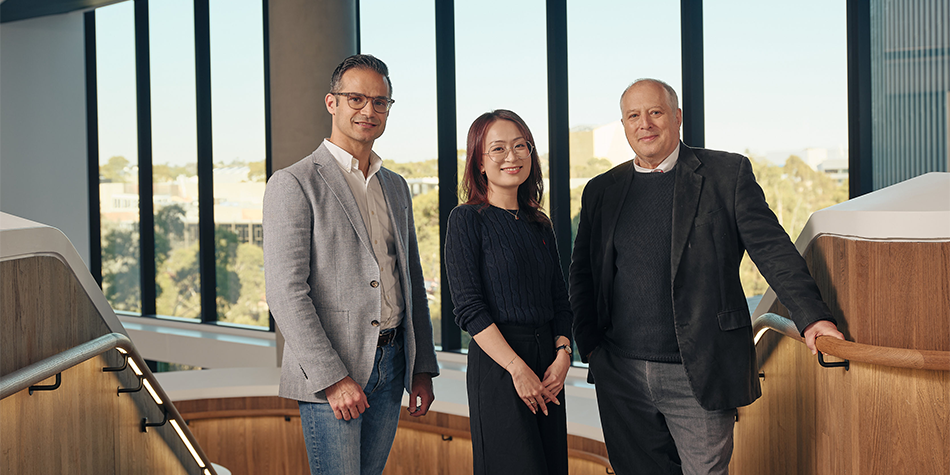Pursuing a PhD is as much about the research as it is about the people who guide you through it. For Rita Vo, a PhD candidate at Deakin University, expert supervision has been the defining factor in her journey – shaping her work, mind and career.
Vo’s research investigates green consumer behaviour, using experimental designs, modelling techniques and natural language processing to better understand and promote environmentally responsible consumption. But behind the technical detail lies the support of two supervisors who have helped craft both her academic direction and personal growth.
‘They’ve shaped not just what I research, but how I think about research,’ Vo says.
Let’s explore how expert supervisors have guided Vo through the highs and lows of her PhD, and what other research students can learn from her experience.
The role of expert supervisors in doctoral research
PhD supervision is more than simply reviewing drafts or tracking milestones. It’s about steering the direction of research, cultivating academic rigour and nurturing a student’s development as a scholar.
At Deakin, this approach is embedded in the culture. Expert supervisors provide first-hand structure and feedback but also serve as sounding boards and critical friends.
‘Expert supervisors are absolutely transformational to a PhD journey,’ Vo explains. ‘They prevent me from going down rabbit holes while pushing me to explore ideas I wouldn’t have considered on my own.’
Having access to seasoned researchers like Professor Michael Polonsky and Professor Ali Tamaddoni means Vo benefits from both world-leading expertise and personalised, day-to-day guidance. Students can find a research supervisor at Deakin who aligns with their interests and goals.
Rita’s experience with her principal and associate supervisors
Supervision works best when complementary strengths come together. Vo’s experience with her principal supervisor, Professor Polonsky, and her associate supervisor, Professor Tamaddoni, epitomises this balance.
‘My office is one room from Michael’s and directly opposite Ali’s, so I can pop in whenever I have a question. This proximity has sped up my progress significantly,’ Vo shares.
While Professor Polonsky focuses on theoretical development and big-picture thinking, Professor Tamaddoni offers rigorous methodological support.
‘It’s like having two different lenses through which to view my research,’ she says. ‘They complement each other beautifully.’
Key qualities of a good PhD supervisor
According to Vo, technical expertise alone doesn’t make a great supervisor. The best also show care, empathy and a commitment to their students’ holistic development.
‘Michael is truly my academic dad,’ Vo says. ‘He’s brilliant but humble. Ali shows incredible emotional intelligence alongside his technical expertise.’
Great supervisors celebrate small wins, encourage persistence through self-doubt and model what it means to be a thoughtful and ethical researcher.
Understanding different supervision styles and their impact
Different supervision styles can dramatically shape the PhD experience. Vo’s expert supervisors take distinctly different approaches, yet together, they’ve built an ideal learning environment.
‘Michael embodies a transformational supervision style,’ she explains. ‘He creates this sense of purpose around what I’m doing that goes beyond just completing a PhD. His approach empowers me to think creatively and reach for my full potential as a researcher.’
‘Ali, on the other hand, takes more of a coaching approach. He’s excellent at explaining the rationale behind methodological choices and providing opportunities for me to develop new technical skills. When I’m working on a new approach, he doesn’t just tell me what to do – he helps me understand why we’re taking certain approaches.’
As her research has matured, both supervisors have shifted to a more supportive style, delegating more responsibility while remaining available for guidance.
The power of PhD mentorship and its impact on success
Supervision and mentorship aren’t the same but when combined, they become a powerful foundation for success.
‘Supervision covers the academic and administrative aspects of a PhD, ensuring you’re meeting milestones, providing feedback on your work and guiding your research direction,’ Vo says. ‘Mentorship goes beyond that to encompass your personal and professional development as a whole person.’
She recalls moments where her supervisors showed genuine care, whether through encouragement during tough times or small acts of kindness that reinforced her value as a scholar.
‘Michael once showed me a scene from Winnie the Pooh where Christopher Robin tells Pooh, “You’re braver than you believe, stronger than you seem, and smarter than you think.”’
These mentoring relationships with expert supervisors have had a lasting impact on Vo’s research, resilience and identity as a future academic.
How Deakin supports PhD students through expert supervision
Deakin’s supervision model is designed to foster collaboration, balance and tailored guidance. Students are paired with principal and associate supervisors based on complementary expertise, ensuring both theoretical and methodological support.
‘The HDR Director, Nichola, was instrumental in initially connecting me with Michael,’ Vo explains. ‘Deakin’s supervision model creates an environment where collaboration and support are prioritised.’
Beyond the matching process, Deakin provides comprehensive support for researchers, professional development opportunities and access to a wide network of research experts across disciplines. The university fosters a culture where supervision and mentorship go hand in hand – creating an environment where PhD students can thrive.
PhD supervision is more than ticking boxes or meeting deadlines. It’s about empowering students to become independent, innovative researchers.
For Vo, the expert guidance and mentorship from her supervisors at Deakin have transformed her entire doctoral journey.
‘I’ve developed a clearer sense of what makes good research and aim to become a better researcher every day,’ says Vo.
‘They’ve modelled the kind of researcher and mentor I aspire to become—someone who contributes meaningfully to knowledge while nurturing the next generation of scholars.’
Ready to find your perfect match? Explore our guide to connecting with expert supervisors.

